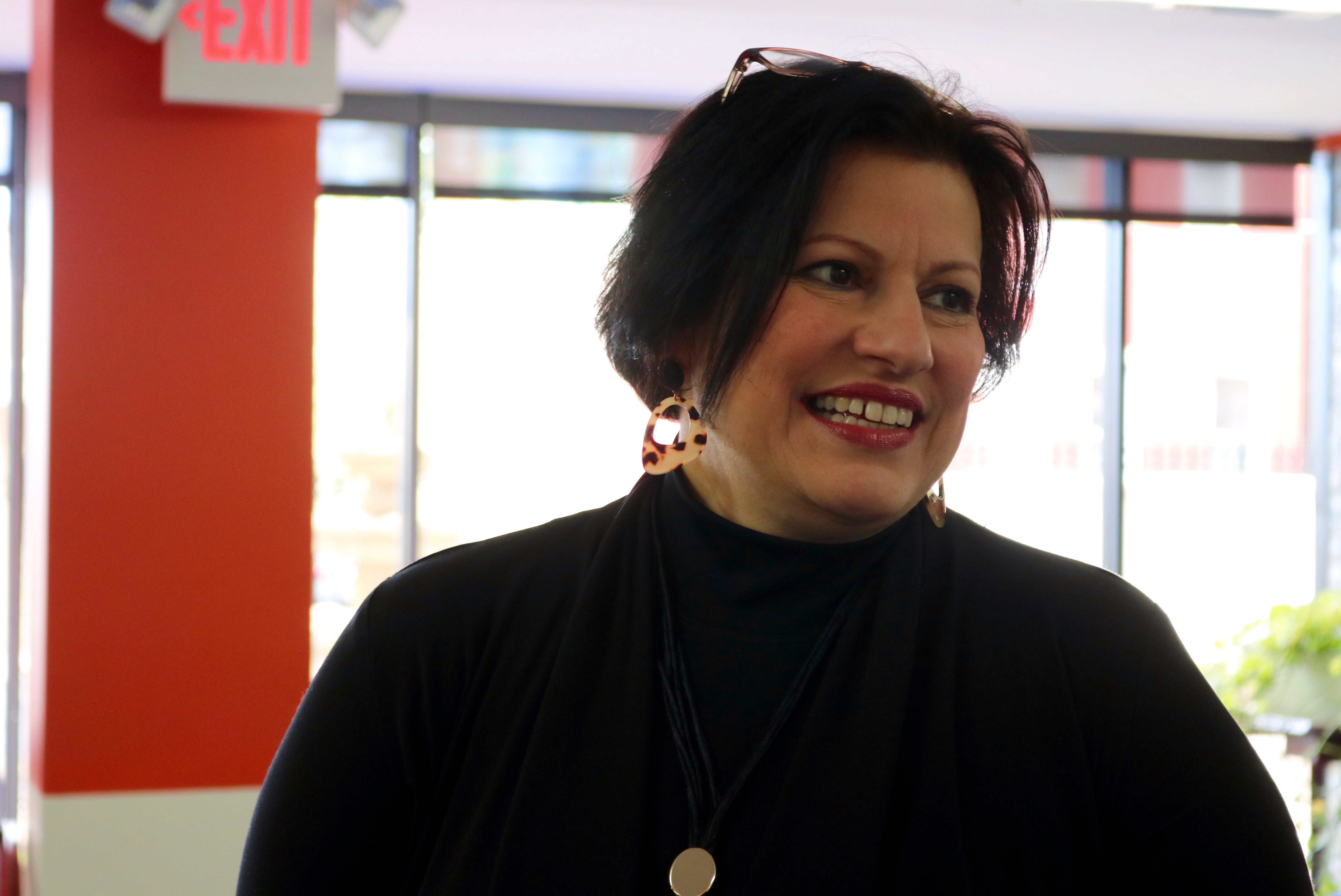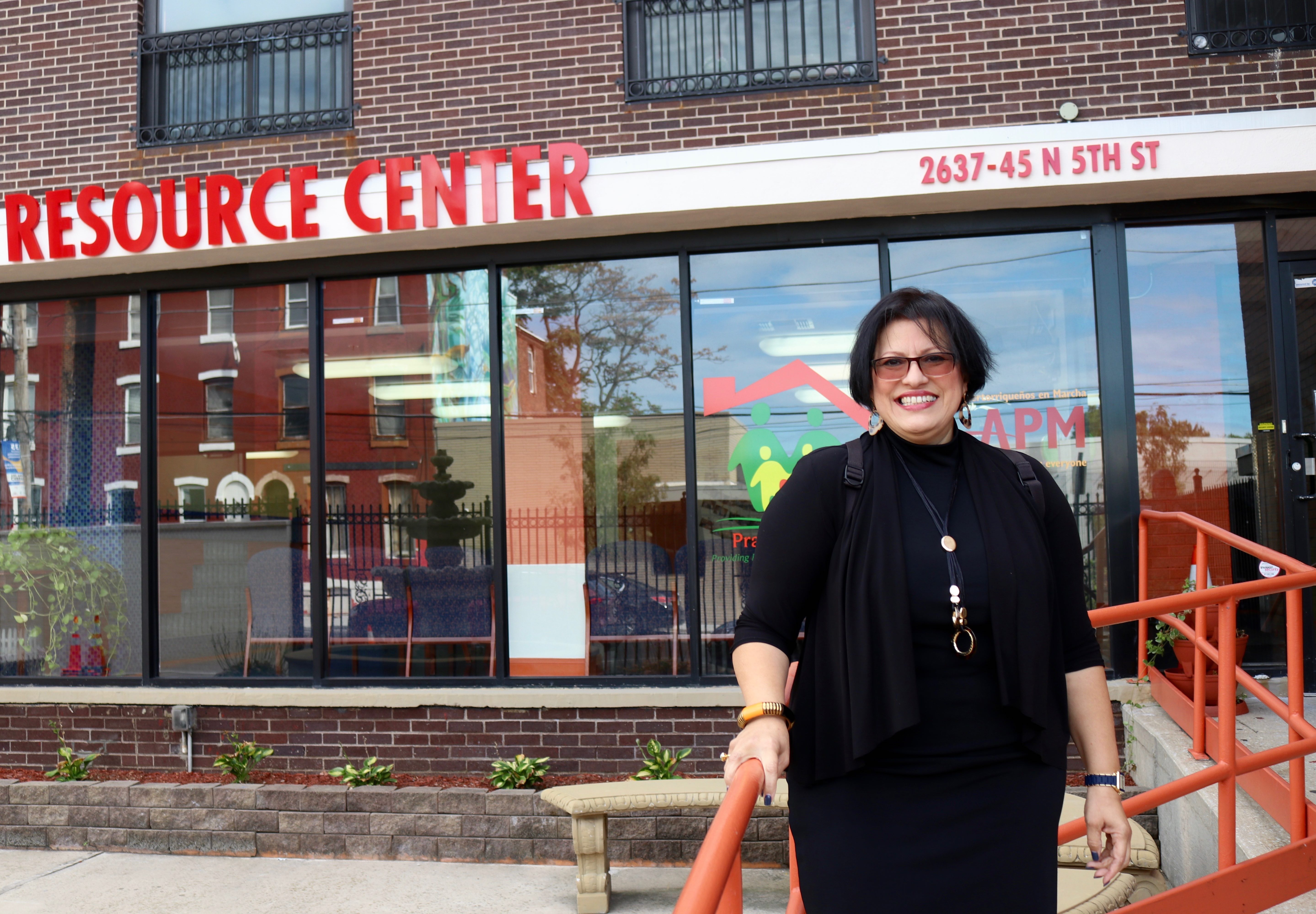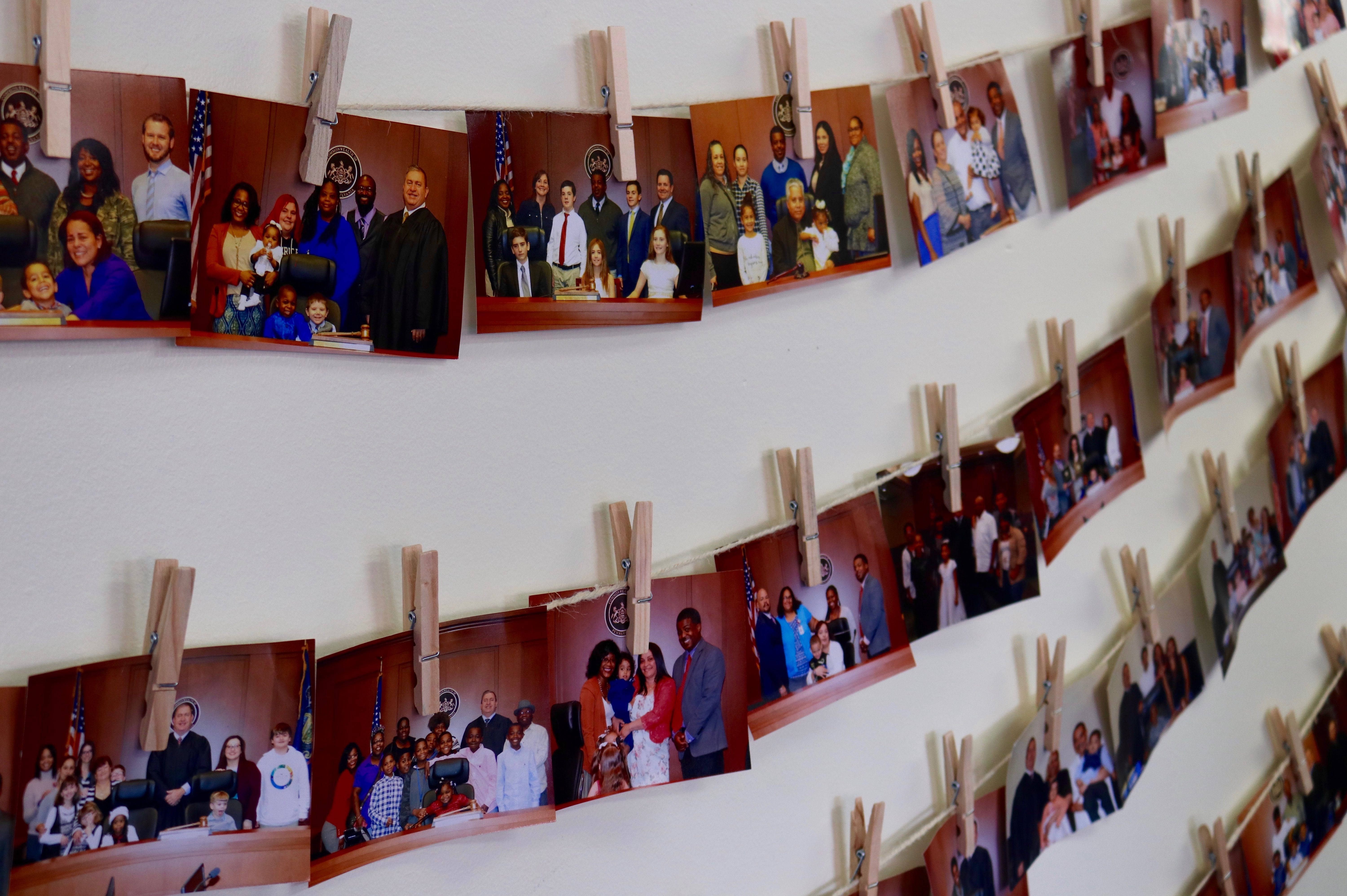
How to run a nonprofit and not die trying: Nilda Ruiz from Asociación de Puertoriqueños en Marcha for Everyone
What makes someone dedicate a lifetime to nonprofit? Nilda Ruiz from Asociación Puertorriqueños en Marcha for Everyone has the answer.
In the 1960s, a Puerto Rican couple moved to Philadelphia. He was a waiter; she was a seamstress. Nine months later, Nilda Ruiz was born in the City of Brotherly Love.
The newest Ruiz was diagnosed with a mild congenital disorder of movement, posture and muscle tone, better known as cerebral palsy, which caused her to spend a lot of time in the hospital as a child.
She was a happy kid, growing up in a humble home, in a neighborhood where everyone spoke Spanish, and English wasn’t necessary. The hospital was the only place where she would hear the Anglo tongue, listening to nurses and doctors talk.
Over time, Ruiz came to understand the language better than she could speak it. But that didn’t save her from the bullying of her classmates once school started.
In one instance, Ruiz recalled them tricking her into saying the F-word. At their suggestion, a young Nilda shouted it in the classroom, completely unaware of the real meaning.
She was given a pink slip.
“I thought they were going to tell mommy how I participate and how good I am at school. But they told her that I would be cursing all the time. I'm like, ‘Cursing! I don't even know what I'm saying,’” said Ruiz.
Through the school system, Ruiz rapidly learned English and at home, her parents instilled the value of education, among other things.
Her mother was a philanthropist “in her own way.” Every little bit of money she made would go to people in their church
“She would help a Mexican friend, who was an immigrant. She paid for the house and gave them work, so he could save money. When he gathered enough, I think he moved to Canada. I got that from her,” recalls Ruiz.
Due to “the stress of being here and... the machismo that carried a lot of men at that time,” her mother left her father when Ruiz was eight-years-old.
Even when the situation was tough, Ruiz praised her mom for being “so ahead of her time,” and teaching her that she didn't need a man, but rather an education, in order to survive.
“Mija ponte a estudiar, porque es la única manera que no tienes que estar controlada por un hombre. Así tu tienes opciones,” said Ruiz’s mom, urging her to focus on her studies to ensure her freedom as a woman.
To this day, she considers it the best advice ever given to her and the driving force during her years at Olney High, and later, Temple University.
Ruiz was accepted into three universities but decided to remain as close to home as possible.
“I didn't dare to go to any of them because I didn't know if my parents would know [how] to get there. Everybody lives within their eight-block radius and they don't move from there,” she explained.
Back then, Ruiz said “all the white kids got to shadow directors. We [Latinos] worked at the typing pool.”
Through hard work, she became head of the typing pool and a substitute secretary for the director — a position that would soon pay off.
Growing up, Ruiz was warned not to speak Spanish “because people don't like Puerto Ricans, Latinos in general, around here.” But it had never been much of a problem for her
In school, she met students who came directly from Puerto Rico and didn't speak any English. As a bilingual, stateside Puerto Rican, conversing with them was never an issue..
“I didn't want to force them to speak English. They would've thought I was a creida, and [I] also wanted to make it comfortable for them,” said Ruiz.
That changed after a summer break, when a new school policy banned talking in Spanish.
Someone had complained to the director after hearing them talk.
When Ruiz found out, her mind ran nonstop.
She thought of an image of her grandfather working in the sugarcane fields of Puerto Rico and it didn’t match with the label of “spic” she often heard given to others.
“Latinos are culturally hardworking people, why they are telling us we're not good enough?” she remembers thinking.
Ruiz didn’t let it define her.
“Boy, that just infuriated me! I just said, no, I'm not accepting that narrative,” she explains.
As secretary, Ruiz had access to the director.
“I don't know if you realize, but my parents were born US citizens speaking Spanish. It is a public building, they [students] should be able to speak Spanish anytime they want,” Ruiz recalled telling the director as he came into the office one day.
“That's a good response!” he replied.
Two weeks later, students were allowed to “speak whatever they wanted.”
The experience was life-altering.
“There is not anything that the community is experiencing or has experienced that I personally, or my family hasn't,'' said Ruiz.

After graduating with a major in Human Resources, she was hired by Asociación Puertorriqueños en Marcha (APM).
They had just finished a housing project for low-income families, and needed a property manager.
“I haven't gotten myself straight together and you want me to show the community how to do better for themselves,” she remembers thinking.
Not only did Ruiz figure it out, but she also found herself enjoying her work. After a couple of years, she left APM to work on a community housing development for Nueva Esperanza A Association.
After three years there, Ruiz sent resumes out and received an offer from the National Council of La Raza in Washington D.C.
“Do I want to be a big fish in a little pond, or do I want to go to Washington, D.C. and become a little fish in a big, big sea?” she recalled thinking.
RELATED CONTENT
Ruiz worked there for six years, learning about other nonprofits throughout the country. Her experience helped her realize that sometimes, founding a nonprofit comes down to the timing and approach.. As times change, many can’t keep up with the community’s needs they initially set out to serve.
“That’s it!” she remembers thinking, that was what APM was going through.
Not knowing if she was making the right decision,she left her comfortable job in DC to headed back to Philly.
“If I screw this up, nobody's going to want to hire me ever. But if I do well, the sky's the limit,” said Ruiz. “I felt that if APM would go down and I didn't do something, I would have always lived to regret it, because I knew what it meant for the community, for myself,” Ruiz told her friends.
Her first move back at the organization was to broaden its service to cater to more than just the Puerto Rican community.
It was a year-long battle, but Ruiz finally managed to steer leadership to understand that speaking Spanish wasn’t enough to make the non-Puerto Rican Latinos feel welcome.
Thanks to her efforts, the name Asociación Puertorriqueños en Marcha for Everyone was born, and for the last 14 years, Nilda Ruiz has been the President and CEO.

APM serves Philadelphia’s diverse Latino community. They will help anyone, says Ruiz, but the main focus is on residents of the 24th and 26th Police Districts.
Their engagement process starts by asking the community what they need. First, they said “we can’t find our foods.” So, APM helped develop a supermarket catered to the community.
As one need was fulfilled, others appeared, and the process to find solutions began again.
“They wanted to reduce the crime, a better education system, walkability, and greening,” said Ruiz.
One by one, APM tries to address the community needs, always keeping in mind the constant change and diversity of people in Philadelphia.
But running a nonprofit isn’t easy, especially when it comes to funding.
AMP yearly budget is around $55 million, and “90% comes from government grant funding,” said Ruiz.
That’s why she makes sure to go for a line of credit that can sustain itself.
“Sometimes they'll offer me $1 million, but if the project costs $1.5 million to build, I just won't take it because I can't,” Ruiz explained.
However, money is not enough if you don’t have good people supporting the job.
Ruiz said she has “a really good team” of people who are passionate about the work, even though sometimes they are discouraged by the immensity of the problems they are tackling.
“You get beaten down so much by everyone telling you you're not good enough,” said Ruiz.
She makes sure to always reiterate, “You are good enough,” to her staff, whenever she gets a chance.
After all, Ruiz says, their work makes it possible for APM to provide: four Pre-K programs, four free behavioral health clinics, financial literacy and development programs for affordable housing, a process to help kids in the foster system, and foster home certifications, among other initiatives.
And their work has paid off.
“We're going on our 50th year, this coming year in 2020. So when we look back, it feels good to have done [the work],” said Ruiz with a smile on her face.
Now, her only concern is finding the right people for the job whenever she retires.










LEAVE A COMMENT: